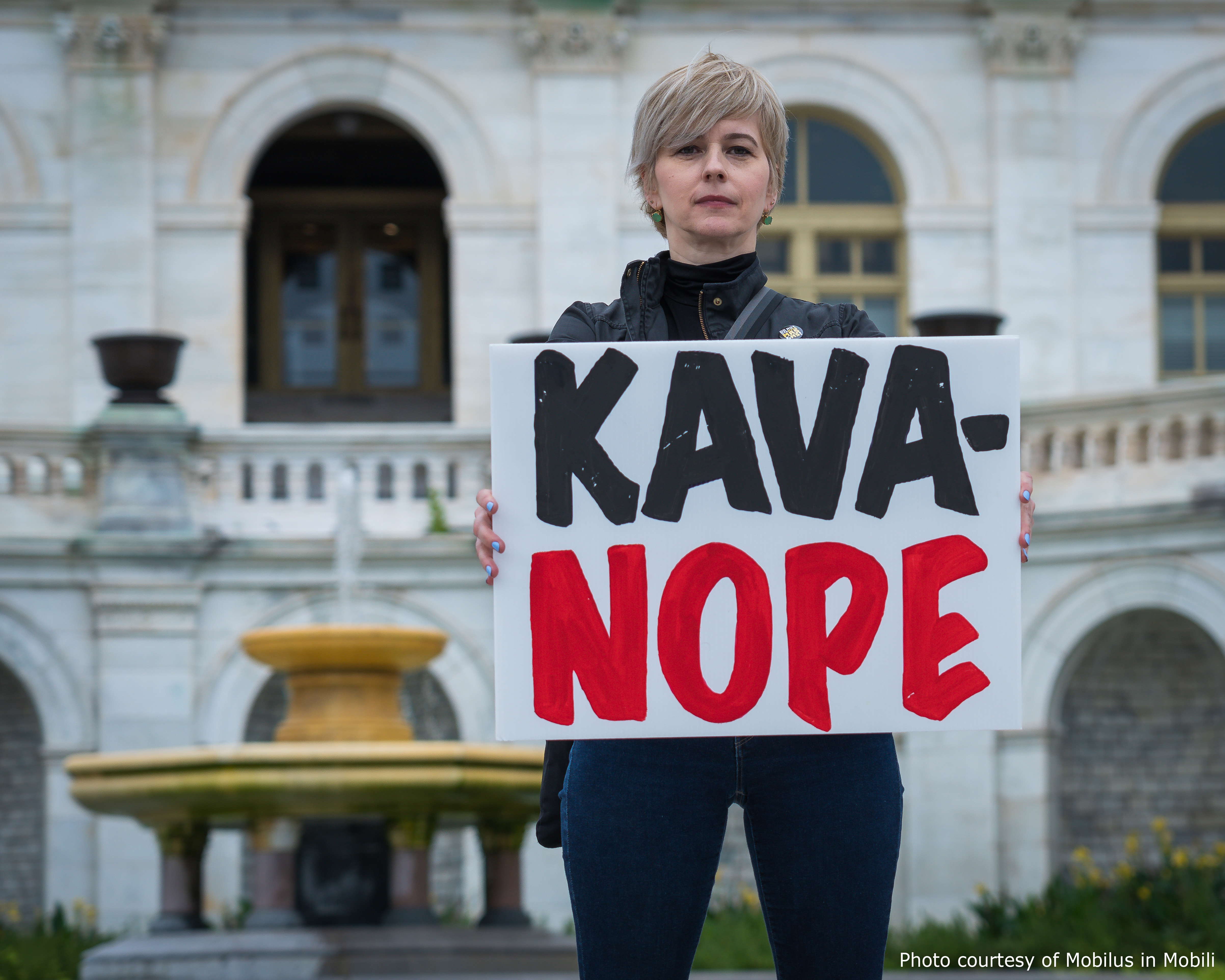Editor’s Note: This article was written before Kavanaugh’s confirmation.
“Indelible in the hippocampus is the laughter, the uproarious laughter between the two. They’re having fun at my expense,” said Dr. Christine Blasey Ford during her testimony, one of three women who accused Supreme Court Brett Kavanaugh of sexual assault. On September 27, Ford sat in front of a group primarily made up of white men while the world watched, and bravely testified about the details of the alleged assault by Kavanaugh when they were both teenagers.
Although people around the world have shown their support for Ford and all other survivors of assault through the hashtag #BelieveSurvivors, not everyone is so willing to take Ford’s side in this “he said, she said.” Many politicians, such as Lindsey Graham and Donald Trump, have been outspoken in their support for Kavanaugh as well as in their opinions about this so-called “vicious” investigation. On Sept. 27, after the hearing, Graham blamed Democrats for what he called an “unethical sham.” Speaking to Kavanaugh, he said, “I hope you’re on the Supreme Court. That’s exactly where you should be.” Graham’s sentiments are intensely troubling because they victimize Kavanaugh while condemning Dr. Ford. It is even more worrisome that other politicians share the same opinions as Graham.
“It’s a very scary time for young men in America,” Trump said recently, “where you can be guilty of something you may not be guilty of.” This has been a recurring sentiment since the #MeToo movement: it’s hard to be a man while so many men are being accused of sexual assault and misconduct. When you’re “guilty of something you may not be guilty of” or rather, falsely accused of assault, many argue it ruins your life. However, the FBI has found that “unfounded” rapes (ones that were found to be false) only occur 8 percent of the time. Putting that statistic into the perspective in relation to which rapes are founded, and then adding in the assaults that are never reported–it becomes even more miniscule. So, men really shouldn’t be too scared, unless, of course, they’re doing something wrong.
This focus on men being falsely accused of assault, rather than the victims of assault themselves, is harmful and aids in perpetuating rape culture. This kind of thinking encourages people like Bret Stephens, who wrote an opinion piece in the New York Times where he boldly stated, “Falsely accusing a person of sexual assault is nearly as despicable as sexual assault itself.”
Equating being falsely accused of assault, which is a miniscule percentage of rape allegations, with an actual assault itself shows not only ignorance, but also shows how little people like Trump, Graham and Stephens care about survivors. These men view people protesting Kavanaugh as attempting to play a political game, when in actuality, they are trying to stand up for Ford and all other assault survivors.
When women go out, they have checklists constantly running through their head: did I leave my drink alone? Does it look funny? Does it taste weird? Is this skirt too short? Do I have someone to walk with back to my car? All of these things constantly make “fun” nights out a chore for women, all to make sure something terrible and traumatic doesn’t happen to them. Trump, Graham and Stephens’ words all make men out to be the victim, saying it’s unfair to unjustly ruin a man’s life with accusations that may or may not be correct. The reality is, though, even if you are convicted of sexual assault or any kind of assault, men can still lead successful lives. Examples of this are everywhere in pop culture: Chris Brown, Woody Allen and Roman Polanski. They’re all men who were accused of sexual or domestic abuse, and in some cases were convicted, yet still have flourishing careers. The truth is that women all too often are attacked for mentioning the illegal acts they survived while their abusers receive sympathy. Women are held to how much they drink, their mannerisms and even what they were wearing. Women are guilty, even if they aren’t accused of anything. Men are innocent, until absolutely, without a doubt, proven guilty.
This isn’t a political issue, as politicians such as Graham would like you to believe. It’s a morality issue; an issue of rape culture come to light in the political world. Although I have written a lot about the surrounding support of Kavanaugh, the voices of believers are drowning out the voices of doubt. Believers of not only Ford, but assault survivors everywhere. WCU itself had a rally in front of the Frederick Douglass statue last week (as written about in the News Section), where both students and faculty showed up to show their support for survivors. It’s inspiring as well as heart-wrenching to see how many people have stories similar to Ford’s, but we do have the power to change it. No matter what the outcome of Kavanaugh’s nomination is, it has already set a powerful precedent; that people in positions of power are not exempt from being held accountable. Rape culture runs rampant on college campuses. The issues of Title IX and the way sexual assaults are treated on campuses are widely talked about, but we, as both a society and as a campus, need to do more. Show up, speak out and hold people accountable. If Kavanaugh is nominated, he will serve as a Supreme Court justice for life, or at least until retirement. College students especially need to be listening to what survivors have to say and pay attention–because no matter the outcome, this hearing, the reactions and the precedent this has set will be felt for years to come.
Alison Roller is a third-year student English major who minors in journalism. AR875447@wcupa.edu

